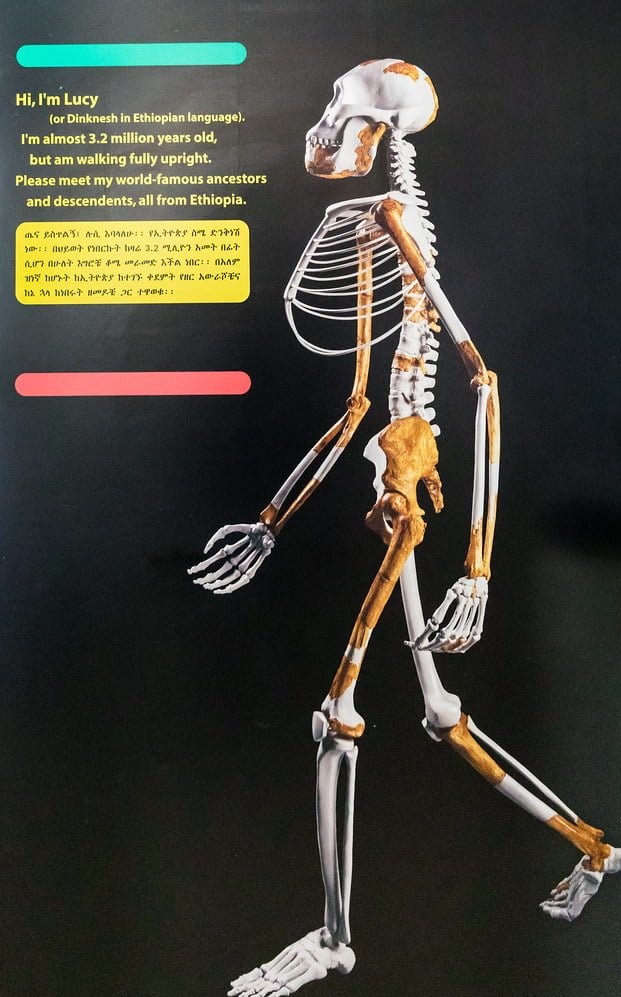Department of Archaeology and Heritage Management
BA in Archaeology and Heritage Management
Three for regular
Admission to regular undergraduate courses is based on the Ethiopian Higher Education Entrance Certificate Examination (EHEECE) scores, the student’s preference, and the capacity of Departments/Schools/Centers. The basic admission criterion for the regular program is successful completion of the common freshman courses, subject to academic performance assessment.
Students must take and pass all the required modules to satisfy the requirements for graduation. Other requirements might be set by specific University graduation requirements, including; A minimum CGPA & MGPA of 2.00, no Fx, F, NG, I grades in any course and compliance with other regulation of a specific University.
Program Details
The archaeology and heritage management program aims to meet graduates’ research and professional needs in archaeology, archaeological field practice, and cultural heritage consultancy. It aims to improve students theoretical knowledge, research abilities, and practical skills in order to help you build a deeper grasp of challenges in a variety of relevant specializations in archaeology and/or cultural resource management. The program incorporates both theoretical and practical material and allows you to use both the principles and practical skills learned during the course.

Carrier Direction
- Study the origins, development, and behavior of humans.
- May research people’s lifestyles, languages, or physical traits in various places of the world.
- May conduct systematic recovery and analysis of material evidence, such as tools or ceramics from previous human cultures, in order to determine the history, customs, and living habits of previous civilizations.
- Collect information and make decisions through observation, interviews, and document examination. Investigate, examine, or evaluate historical societies and cultures in order to find answers to specific study topics.
- Write and convey research findings to a wide range of specialized and general audiences.
Jobs directly related to Archaeology and heritage management degree include:
- Academic researcher
- Archaeologist
- Conservator
- Heritage manager
- Historic buildings inspector/conservation officer
- Museum education officer Museum/gallery curator
- Museum/gallery exhibitions officer
- Jobs where the degree would be useful include: Archivist Cartographer Higher education lecturer Government social research officer Local government officer Records manager Social researcher Tourism officer
Students will acquire a variety of subject-specific and technical skills, including:
- Putting theoretical and scientific principles and concepts to use in solving archaeological difficulties
- Techniques for fieldwork, post-excavation, and laboratory analysis
- Using statistical and analytical tools to analyse archaeological data for spatial data interpretation
- An archaeology course will also teach you how to: operate as a team member or leader in the field and on projects; construct structured arguments supported by evidence; and use various IT packages.
- Create and deliver oral presentations for various audiences acquire information to create written reports work deliberately and accurately show attention to detail Because this skill set is appreciated by a wide range of businesses, you are not limited to the heritage sector.
Among the archaeologists’ employers are:
- Independent archaeological consultants archaeological contractors
- Local governments, national heritage organizations, private museums and charities, and university archaeology departments are all examples of public institutions.
- You might also look for opportunities in the field of rescue archaeology. This is also known as commercial, contract, compliance, preventative, or salvage archaeology, and it occurs before to any construction or land development.
- Archaeology graduates can also pursue careers in the following fields: Accounting and data analysis law local government marketing and media research and teaching information services
Courses
| Module title | Courses | Course ECTS |
|---|---|---|
| Early Humans and their Cultural Behaviours | Introduction to Physical Anthropology | 6 |
| Pre-historic Archaeology of Ethiopia and the Horn | 6 | |
| Introduction to Archaeology: its Theories and Practices | Introduction to Archaeology | 6 |
| Introduction to Archaeological theories and Methods | 6 | |
| Introduction to Heritage Studies and Management | Introduction to Heritage Studies | 6 |
| Introduction to Heritage Management | 6 | |
| Basics of Tourism, Travel and Tourism Marketing | Basics of Tourism and Travel | 6 |
| Tourism Marketing: | 6 | |
| Introduction to Museum Studies and Management | Introduction to Museum Studies | 6 |
| Introduction to Museum Management | 6 | |
| Historical Archaeology of Ethiopia and the Horn | Historical Archaeology of Ethiopia and the Horn part I | 6 |
| Historical Archaeology of Ethiopia and the Horn part II | 6 | |
| African Archaeology | African Archaeology | 6 |
| The Archaeology of the Nile Valley | 6 | |
| Principles of Conservation and Management of Archaeological Sites | Principles of Conservation | 7 |
| Managements of Archaeological Sites and Impact Assessments | 6 | |
| Senior Essay Writing | Senior Essay Writing Part I | 6 |
| Senior Essay Writing part II | 6 | |
| Ethiopian Art | Ethiopian Art | 6 |
| Themes in Ethiopian Archaeology and Heritage management | Themes in Ethiopian Archaeology and Heritage Management | 6 |
| Practical Skill Training | Practical Skill Training | 7 |
| Management of World Heritage Sites | Management of World Heritage Sites | 6 |
| Introduction to Logic | Introduction to Logic | 5 |
| Civics and Ethics | Civics and Ethics | 5 |
| Basic English Skills | Communicative English | 5 |
| Basic Writing Skills | 5 | |
| General Geology | General Geology | 6 |
| Ethiopia and the Horn | Ethiopia and the Horn | 5 |
| Introduction to Ethiopian Philology | Introduction to Ethiopian Philology | 5 |
| Geographic Information System | Geographic Information System | 5 |
| Ethnography of Ethiopia | Ethnography of Ethiopia | 5 |

